However, I was given some powerful thoughts by a friend of mine who gave me permission to share them.
"Imagine if we just went in a circle, winter became spring, we didn't name things. December did not become January. 2013 does not become 2014. 11:59 p.m. Does not become midnight, then does not become 12:01 a.m. Sunday doesn't become Monday. No lunch hour, no bedtime, no weekends, no hump day. If we live in the now, we live in reality. If we live on the calendar, we live in the world of profits, artificial priorities, hierarchy, injustice, and violence. Is it is perhaps time to stop measuring, stop keeping track, close the book on what was never really important to the soul. Maybe this is what the new age is really about"
(Words of wisdom from my friend, Andrew)
Obviously, in this day and era the concept of time that we have created - and we have created it, constructed it, made it into a part of our social contract - is pretty inescapable. If we wish to function, to earn money, have financial stability, care for and feed our families, and exist in the social web of interactions all around us, we cannot throw out the concepts of hours, minutes, and seconds, ticking by. We cannot, without abandoning our place in the social contract and therefore becoming ostricised by it, ignore months, calendars, goal setting, being on time, being dependable.
And yet, there is no doubt about it. In exchange for socially acceptable "stability", a nebulous promise of financial gain and a superficial sense of connection, we have become the crawling exhausted slaves of "time". We scramble from moment to moment, our entire lives defined by where we must be, hours or minutes or seconds from now, in an unknown future that has not arrived yet.
We are allowed momentary, socially acceptable pauses, to contemplate events in the past - rapidly speeding birthdays, certain holidays passing in blurs - all of which must conform to a myth created by society of how one's life "should" be, to be acceptable.
We are allowed momentary, socially acceptable pauses, to contemplate events in the past - rapidly speeding birthdays, certain holidays passing in blurs - all of which must conform to a myth created by society of how one's life "should" be, to be acceptable.
And it all crescendos into a great roaring in our heads,
of constant time checking,
did I put the trash out,walk the dog,
check the mail
ferry the kids
doIhave
timetostopatthestore,
ismyprojectforschool/worklate,oh gods,
what day is it, what day is it?
what day is it, what day is it?
AM I WHERE I AM SUPPOSED TO BE???!!!???
And we lose the things that really matter...true connection. Connection with the earth. With our fellow creatures. Our fellow sojourners. Our calendars bear no connection to the world around us. We are cut off. For example, for those of us in the Northern Hemisphere, the Winter Solstice is only days behind us. For most of us, we were sort of aware of it, flipped on the electric light when darkness fell....if we lived in winter climate, flipped the heat up a notch if it were cold, got up at the usual insane hour of the morning to get to work, also probably in darkness. We feel fatigued and worn out often as the days darken, and the commercial holidays overwhelm us. We continue to hold to a rigid schedule enforced by the clock and the glare of electric lights.
Before the advent of electricity, winter and it's deep dark cold silence had a much greater impact upon us all. Days became shorter, and nights longer, but there was no artificial prolonging of the day. Harvest was done, stock were slaughtered and meat preserved. The rudimentary calendar imposed by the cycles of the sun and moon existed, but life slowed down. Beyond basic care and chores, winter became a time of rest in colder climes, a time when sleep lengthened, an opportunity for crafts and story telling and rest, after the back breaking months of the harvest were past. Living in the moment, connected with the wheel of the year and with family and community, meant there was what I would call fallow time. Winter was hard and cold, even dangerous, but also a time of rest and surcease and togetherness. Light became precious, symbolic, warmth and life itself. Hundreds of ancient fire festivals surround the presence of light and fire became a talisman against death itself.
In those days, we were mindful of this.
We took the opportunity for rest and silence, creativity and celebration.
Today?
Today, we reach the longest night of the year, flip on the lights and charge madly on, in just as much of a hurry as ever. We walk into warm buildings without even thinking about what it would be like to try to heat them without electricity.
If we are privileged to have electricity and heat and light, we rarely think about the fact that there are those who do not have that privilege that we take for granted.
Light is lessened in importance, darkness is ignored. Warmth is assumed. And not only do we continue with the same break neck pace we keep all year, but we add more stress and hurry in the form of commercial "holi-days" that in the end have nothing holy about them.
There is no rest.
No silence.
No time for creativity.
No celebration save that of keeping a harried exhausting schedule. There is only approximately 9 hours of sunlight, give or take for the day of the winter solstice, as opposed to its opposite number - over 14 hours of daylight for the summer solstice that balances it...does that mean in the winter, after a long exhausting year of work, we get to cut short our work schedules, set our alarm clocks later, go to bed earlier, sit beside the fire on long dark evenings and talk and be with family and drowse?
No, because the distinction of living in the moment, of resting, of a natural break for the body and soul, of balance has been destroyed by our artificial light, our artificial schedule, our artificial holidays. We go, and go, and go, year in and out without any natural break, ignoring nature's rhythm and process. Yes, we have great benefits of modernization. Light, warmth, safety, the ability for continuity, profit, travel, food storage, advances in health and length of life. We would not blindly throw these things away, for the difficulties of the ancient past - freezing cold in winter, darkness, possible hunger and starvation when crops were bad locally, disease, injury and illness that claimed lives without modern recourse, back breaking work the likes most of us have never known. We would be insane to do such a thing.
And yet we have also thrown away our balance. Our mental health. Our ability to live in the moment. To slow down. To extinguish the last fire of the year, and greet the darkness as holy, resting, before lighting the flames a new for the dawn and return of the light. To take the time given naturally by the rhythms of the earth, to rest, and renew ourselves.
And in devaluing and throwing these things over board for the never ending, pounding social pace of the calendar we have we have constructed,
the ticking clock we have imprisoned ourselves with,
the lights we never turn off,
we have exhausted ourselves to the point of losing all meaning.
We cannot, as Andrew suggests, throw over all schedules and all clocks in the modern world. However tempting it might be to do so! We must live in this world.
But we CAN seek the mindfulness of our ancient past. We can stop and experience light and dark, holiness and living in the moment. We can evaluate our harried schedules and choose what is truly important to us. We can eliminate some of the artificial mandates that our culture insists on attempting to impose on us. We can devote our hands to crafts, and creativity, instead of thronging crowded big box stores for cheap imported plastic goods. We can choose, in the winter evenings to turn off electric lights and light candles and fireplaces for the warming and care of the soul. We can invite friends over for quiet gatherings, talking and sharing and laughing, without blaring endless loud canned music and crowding in with drunken strangers in a noisy bar. Maybe we can't tell our employers that we're not coming in for as long, or during hours that are dark - we can't risk losing our employment!
Before the advent of electricity, winter and it's deep dark cold silence had a much greater impact upon us all. Days became shorter, and nights longer, but there was no artificial prolonging of the day. Harvest was done, stock were slaughtered and meat preserved. The rudimentary calendar imposed by the cycles of the sun and moon existed, but life slowed down. Beyond basic care and chores, winter became a time of rest in colder climes, a time when sleep lengthened, an opportunity for crafts and story telling and rest, after the back breaking months of the harvest were past. Living in the moment, connected with the wheel of the year and with family and community, meant there was what I would call fallow time. Winter was hard and cold, even dangerous, but also a time of rest and surcease and togetherness. Light became precious, symbolic, warmth and life itself. Hundreds of ancient fire festivals surround the presence of light and fire became a talisman against death itself.
In those days, we were mindful of this.
We took the opportunity for rest and silence, creativity and celebration.
Today?
Today, we reach the longest night of the year, flip on the lights and charge madly on, in just as much of a hurry as ever. We walk into warm buildings without even thinking about what it would be like to try to heat them without electricity.
If we are privileged to have electricity and heat and light, we rarely think about the fact that there are those who do not have that privilege that we take for granted.
Light is lessened in importance, darkness is ignored. Warmth is assumed. And not only do we continue with the same break neck pace we keep all year, but we add more stress and hurry in the form of commercial "holi-days" that in the end have nothing holy about them.
There is no rest.
No silence.
No time for creativity.
No celebration save that of keeping a harried exhausting schedule. There is only approximately 9 hours of sunlight, give or take for the day of the winter solstice, as opposed to its opposite number - over 14 hours of daylight for the summer solstice that balances it...does that mean in the winter, after a long exhausting year of work, we get to cut short our work schedules, set our alarm clocks later, go to bed earlier, sit beside the fire on long dark evenings and talk and be with family and drowse?
No, because the distinction of living in the moment, of resting, of a natural break for the body and soul, of balance has been destroyed by our artificial light, our artificial schedule, our artificial holidays. We go, and go, and go, year in and out without any natural break, ignoring nature's rhythm and process. Yes, we have great benefits of modernization. Light, warmth, safety, the ability for continuity, profit, travel, food storage, advances in health and length of life. We would not blindly throw these things away, for the difficulties of the ancient past - freezing cold in winter, darkness, possible hunger and starvation when crops were bad locally, disease, injury and illness that claimed lives without modern recourse, back breaking work the likes most of us have never known. We would be insane to do such a thing.
And yet we have also thrown away our balance. Our mental health. Our ability to live in the moment. To slow down. To extinguish the last fire of the year, and greet the darkness as holy, resting, before lighting the flames a new for the dawn and return of the light. To take the time given naturally by the rhythms of the earth, to rest, and renew ourselves.
And in devaluing and throwing these things over board for the never ending, pounding social pace of the calendar we have we have constructed,
the ticking clock we have imprisoned ourselves with,
the lights we never turn off,
we have exhausted ourselves to the point of losing all meaning.
We cannot, as Andrew suggests, throw over all schedules and all clocks in the modern world. However tempting it might be to do so! We must live in this world.
But we CAN seek the mindfulness of our ancient past. We can stop and experience light and dark, holiness and living in the moment. We can evaluate our harried schedules and choose what is truly important to us. We can eliminate some of the artificial mandates that our culture insists on attempting to impose on us. We can devote our hands to crafts, and creativity, instead of thronging crowded big box stores for cheap imported plastic goods. We can choose, in the winter evenings to turn off electric lights and light candles and fireplaces for the warming and care of the soul. We can invite friends over for quiet gatherings, talking and sharing and laughing, without blaring endless loud canned music and crowding in with drunken strangers in a noisy bar. Maybe we can't tell our employers that we're not coming in for as long, or during hours that are dark - we can't risk losing our employment!
But we can make space for rest, connection and that spiritual renewal in our own lives at home, however we interpret it to ourselves.
We can choose mindfulness daily, each step and thought.
We can choose to honor the dark, to call to us it's sacred gifts of slowing down, of rest and surcease.
We can choose in the flame of the candle and the warmth of the fire place to fill our souls with humbler lights than those of the glare of neon and jammed malls and traffic gone mad.
And find in doing so that light once again becomes sacred.
Winter brings with it a divine moment of sacred rest, an opportunity to learn the value of the light, of home and hearth and soul.
To create our inner most self anew.
To learn a mindfulness that if we create it and model it and practice it, keep and sustain us throughout the year.
Celebrate the Ancient Dark!
Call forth the Holy Light.
Raise the horn, drink hail!
Wassail!
And rest this winter's night!
Blessed Be, and be blessed, always.
Blessed Be, and be blessed, always.


























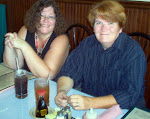


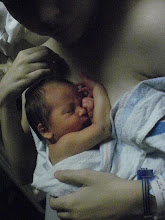

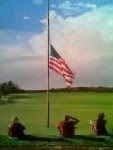
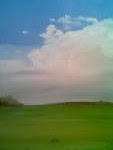






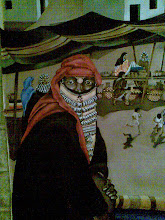








Cool ideas!
ReplyDelete